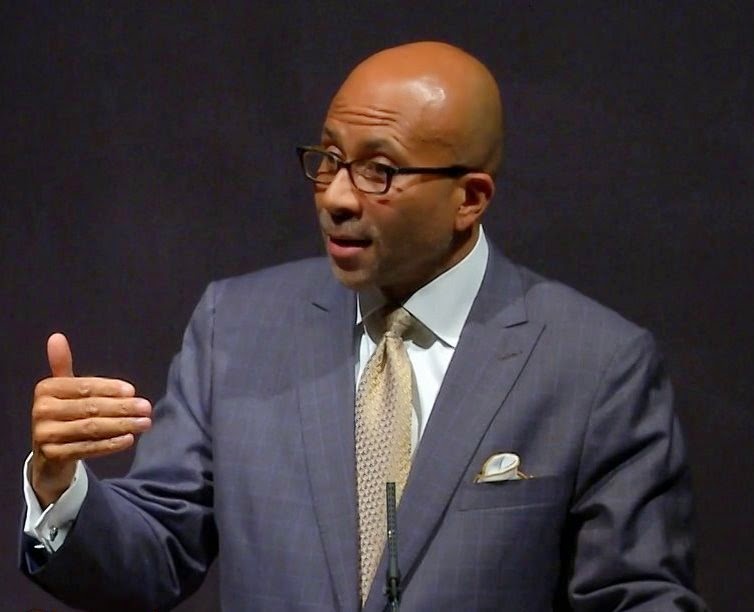Writing God's Obituary: Anthony Pinn Interview, Part 2
Today features the second part of a 2-part interview with Dr. Anthony Pinn about his new book Writing God's Obituary: How a Good Methodist Became a Better Atheist (Prometheus, 2014). Read part 1 of my interview with Dr. Pinn here.
*******************
PLS: In my own study
and sense of the humanist movement in the U.S., I’ve been struck not only by
the growth of the movement (here I’m thinking of recent Pew data, surveys,
and Elizabeth Drescher’s commentary, for instance), but in discussions and lecture
forums an emerging discourse of what we might call humanist outreach that
doesn’t fixate on hostility to religion (exhibited by some of the “New
Atheists”), but instead promotes a strategy of critical intellectual dialogue
with the general public. Can you offer your impressions of these trends?
AP: I know what you
have in mind, but I wouldn’t call it a “trend,” in that I don't like the
implications of the term. We run into a problem if we assume
humanism and atheism are easily defined by several of the public figures who
advance a rather limited and aggressively anti-religion platform. I would
suggest in communities such as the African American community, humanism and
atheism have been tied traditionally to concern for social transformation and
advancement. Humanism, by its very nature I would argue, must be
concerned with the well being of life in its various forms; and, this must
involve attention to issues of justice. Of course, this includes issues of
separation of church and state as well as science education, but this regard
for transformation and justice must push into other areas of collective life as
well.
PLS: In the closing chapters of Writing God’s Obituary, you discuss the place of race and ethnicity within the modern humanist movement, and in recent years, you’ve discussed this at public forums, conferences, etc. It strikes me that there seems to be something of a parallel between white subjectivity in the modern humanist movement and white subjectivity in the modern evangelicalism that I study in the sense that in both groups there exists a desire for racial and ethnic diversity yet an individualist cultural toolkit blinds both groups from understanding how societal structures divide rather than unite (such as the work your Rice colleague Michael O. Emerson has published on evangelicalism and multiracial churches). To the extent that my impressions are correct on this score, how might these issues factor into the future of the humanist movement in the U.S.?
AP: I would pose a
question related to the assumption that these groups are desirous of diversity,
and I wonder about simply framing this in terms of white subjectivities (which
might actually reinforce a problematic epistemology). I think that has to
be proven, rather than assumed. The problem, at least in part, is this:
groups tends to confuse diversity with different shades of the same.
That is to say, they want others who have a different look, but hold to
the same ideological, etc., positions. Such a position on diversity draws
from a demand to remain within one's socio-economic, cultural and political
comfort zone. It’s a limited and limiting way to “democratize”
organization make-up and work. More difficult than this issue, however, is the
assumption that difference is a problem to solve. Such an understanding
of diversity doesn’t lend itself to complexity because it is premised on a
negative hermeneutic. There is an assumption guiding this mode of
interpretation that suggests everyone must be together, in one group, with one
mode of expression and interaction. Perhaps, just perhaps, diversity might be
constituted by an array of organizations, communities, etc., holding to their
own agendas but united by a sense of solidarity?
PLS: What are you
working on now? Inquiring readers want to know what’s up next for Dr. Anthony
Pinn.
AP: I’m completing
a couple of books related to the culture(s) of humanism, as well as two
co-edited volumes on religion and hip hop (including attention to its
humanistic tendencies); and I’m at the copy edit stage of my first novel, which
wrestles with issues of human suffering and theodicy.


Comments